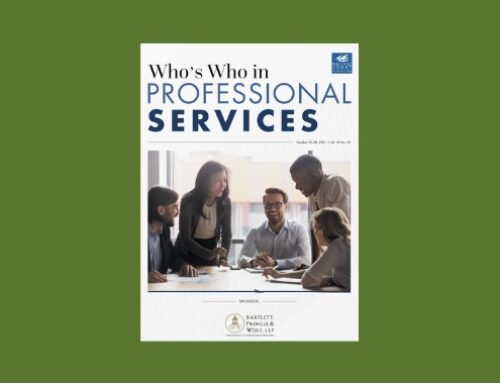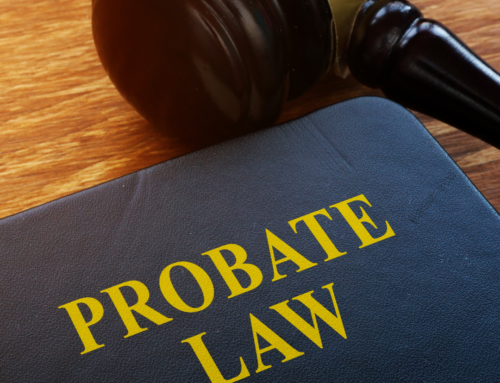COVID -19 Guidance
The Coronavirus (COVID-19) has become an evolving and uncertain public health issue affecting people globally and close to home, we recognize that all of us will certainly be impacted. Circumstances are changing seemingly by the hour, creating uncertainty for business and the public alike. While we are focused on the safety and well-being of our employees, clients, families, and the communities in which we all live and work, we also understand that your business must continue.
Recent conversations have informed us that our clients, like many others, are increasingly concerned about not only the operational risks, but also to risks arising out of the public’s and government’s response. Our attorneys are currently advising clients as to the wide-ranging implications and we have decided to publish a bulletin to help our clients and others anticipate and address some of the risks that seem to flow from these circumstances.
Employment Law
COVID-19 creates a myriad of issues for employers. The primary types of questions our attorneys get from employers relate to what the employer can, may, or must do relating to their employees. In addition, the current environment has led other questions about employee layoffs, leaves or reduction in hours/pay. Some examples of these questions are as follows:
- Can we, may we, or must we send an employee home?
- Yes, yes and maybe – An employer’s obligation to keep a workplace healthy and safe provides wide latitude here
- What happens if an employee refuses to go home or refuses to work with or near another employee?
- This a very fact specific question, largely based on the above health and safety obligation
- What are our obligations to other employees if one employee is infected or suspected to be infected?
- Employers should make sure that sick employees stay home and are isolated. Do not encourage or allow sick employees to come to work
- Can we talk to employees about their families and/household medical condition?
- There are Federal limitations on questions to be asked about family members. Be careful not to inquire about family unless you have a reasonable suspicion there is something to ask about.
- What are our obligations to customers, clients and third parties?
- While you have a heightened obligation to your employees, you also may have an obligation to provide a safe environment to customers
- Must we supply masks or protective items to employees?
- This depends on the situation. First responders and high risk employers may have such an obligation. Others likely do not, but it is fact specific
- Can we mandate employees wear PPE?
- Again, this depends on the risk encountered by your employees
- What are my pay obligations if I tell an employee not to come to work?
- Employees may be able to use vacation and sick leave, in certain circumstances. Laws are changing rapidly, but most employers will not have obligations beyond vacation and sick pay
- Can I place an employee on leave during a business slow-down?
- Yes, but the type of leave will depend on your employees
- How do I decide what employees I may need to lay off?
- This decision should always be made in a neutral and non-discriminatory manner
The White House has just published guidance for the next fifteen (15) days, which can be found at 15 Days to Slow the Spread.
The CDC has additional guidance that may be of help to your business: How to Protect Yourself.
Our attorneys are fielding numerous questions regarding best practices for employee safety, required accommodations (particularly for employees who are more vulnerable), discrimination and termination issues and employee privacy issues. Unionized employers may have some unique questions that arise, particularly issues relating to required bargaining over actions the employer may want to take to protect its workplace.
Corporate and Transactional
Operational
In the business and transactional arena, a primary area of concern is the operational risks that arise with employees, customers, and vendors whose performance might be affected by the outbreak or related management concerns. Initially these concerns were most pertinent to those businesses that depend on China for manufacturing and supply chains. However, as the number of confirmed cases of COVID-19 has spread around the globe, the business impacts have quickly spread to affect any business reliant on overseas operations for manufacturing and supply chains. Further, as local, state, and federal authorities have begun implementing additional restrictions and recommended business closures, including “shelter in place” orders in various parts of the country, including California, the impacts of COVID-19 have now spread to every part of the economy. Companies should be proactive in their terms of sale and services to address the potential they may be unable to fulfill orders due to supply chain issues. “Time is of the essence” and “force majeure” clauses in commercial contracts should be given significant attention.
New Business Ventures
New business ventures currently in the planning stage do not need to halt their planning, but they should actively disclose COVID-19 related risks and the potential impacts on their planned operations in order to avoid securities litigation arising out of defective disclosures. Avoiding this exposure calls for working closely with counsel to develop thorough risk analyses and to assure the timely, accurate communication of known material events and risk factors.
Existing Operations
Companies with existing operations should be proactive in notifying their shareholders and investors of the potential business impacts and the company’s plan to mitigate those risks, taking into consideration investors’ expectations that management is anticipating and planning for the potential impacts should COVID-19 continue to cause substantial disruptions.
Market Volatility
Another major impact is the effect of a volatile stock market on the ability of clients to pursue capital funding. A number of clients have questioned whether COVID-19-related risks, or the current market volatility, might trigger “material adverse change” clauses in pending agreements. If the current situation becomes protracted or is exacerbated by further developments, it could impact an investor’s perception of company value, could affect lenders’ willingness to extend credit, and may affect capital markets transactions as they evaluate the longer-lasting effects on revenues and strategic planning. These factors should be taken into consideration in any pending transactions with a thorough and careful review of closing conditions and operating covenants during the drafting process. Likewise, pricing structure alternatives should be considered in the event a target business or asset loses value during the sign-to-close period as a result of (either directly or indirectly) the COVID-19 outbreak.
Anticipating the operational and transactional risks, and by monitoring and updating company policies and procedures to address these matters, seem to us to be both indispensable and necessary given the full impacts of the outbreak have not yet fully materialized.
Commercial Real Estate and Land Use
Commercial Properties
The primary concern for all tenants and landlords with commercial operations must be the health and welfare of the property occupants, who are fundamental to the commercial viability of the business being operated, and by extension to the landlord housing that business and collecting rent. Success in dealing with human health will drive the timeline for economic recovery. In addition to undertaking appropriate cleaning and sanitation measures in the spaces they control, commercial tenants who operate in facilities with common areas like malls and office buildings, and who are still permitted to operate, should dialogue with property managers about heightened cleaning measures, and how such common area expenses will be handled as between the landlord and tenants. Both landlords and tenants should review their leases to confirm whether it includes provisions for rent abatement in the event of “government action,” now that authorities are beginning to order the closure of “non-essential” business operations. All owners and renters of commercial property should be evaluating their insurance coverages in case their circumstances might trigger a viable business interruption claim.
Developers
Developers with projects in stages of entitlement review, including building permit review, should anticipate delays in processing of their applications as local jurisdictions close offices, redirect manpower, or otherwise postpone public hearings. Now is the time to review the loan agreement and start thinking about how to address timing issues with project lenders, as there appears to be the potential for significant delays. Developers should also work with agencies to extend permit expiration dates to account for extended permitting and construction timelines.
Multi-family Real Estate
Residential property owners and managers, in particular, face questions about how to best protect the health and safety of tenants, while balancing the needs of management staff in the field and the business. Managers should be implementing existing emergency management and business continuity plans; if they don’t exist, now is the time for implementation. The first step is to stay informed of rapidly-changing guidance and orders from public health officials. Landlords and managers should be regularly monitoring websites like the Center for Disease Control’s (CDC) COVID-19 Summary Page and the State of California’s COVID-19 Updates Page for the latest information and guidance from public health authorities. Evaluate the range of risks to your property, staff, and tenants arising from the spread of COVID-19. If there is an outbreak at your property, how will you safely maintain field operations at the property? Is there a possibility that key vendors will be unwilling or unable to continue providing services? Begin communicating your assessments and plans to key staff and check in with vendors. Consider measures to protect the safety of your employees and maintain business continuity in the event of an illness (review our discussion elsewhere about employment law considerations). Consider your obligations to notify tenants if another tenant or a staff member is diagnosed with COVID-19, including language of individual lease terms such as provisions regarding disclosure of security or safety risks, and applicable privacy laws and regulations. Make sure to clean and sanitize common areas in accordance with CDC recommendations.
Review insurance and lease language regarding allocation of responsibilities and liabilities. Allocation of additional operating costs resulting from the coronavirus between landlord and tenants will be affected by rental agreement provisions. Many response, remediation, and business interruption costs are not covered by insurance policies, so policy language should be carefully examined to determine whether any such costs might be reimbursable.
Some municipalities, including Santa Monica, West Hollywood, Oakland, San Jose, San Francisco, and others, have enacted emergency ordinances forbidding landlords from initiating eviction proceedings against residential tenants affected by the coronavirus. State legislature are reportedly planning to introduce emergency legislation creating similar statewide protections for tenants, in addition to foreclosure relief for homeowners. It remains to be seen whether there will also be governmental relief for business losses resulting from these policies.
Commercial Finance and Lending
As the short-term effects of COVID-19 disrupt supply chains and cash flows, and while the long-term effects remain unknowable, lenders should make sure they know where they stand under their existing loan documents. Parties considering negotiating new commercial loans in the current environment must carefully consider the risks to the health of their business and the overall economy as our communities address the spread of the coronavirus. Lenders should anticipate performance problems with existing commercial loans, be prepared in the event there is a surge in defaults, and understand their rights and remedies. In particular, it is likely that lenders will find themselves looking at potential Materially Adverse Change clause triggers, which can lead to significant liability for the lender if invoked importunately.
In closing, these are difficult times for everyone. However, we want to assure you that we are focused on uninterrupted client service and your business continuity. You are able to count on Fauver, Large, Archbald & Spray LLP for continued service during this time of crisis. We remain available to assist you with your existing legal needs, as well as to address any issues that you may be facing as a result of the impact of COVID-19 or the volatile markets.
Please let us know how we can help.
DISCLAIMER: This Advisor is one of a series of business, real estate, employment, estate planning and tax bulletins prepared by the attorneys at Fauver, Large, Archbald & Spray, LLP. This Advisor is not exhaustive, nor is it legal advice. You should discuss your particular situation with us or with your own attorney. Our legal representation is only undertaken through a written engagement letter and not by the distribution or use of this Advisor.





